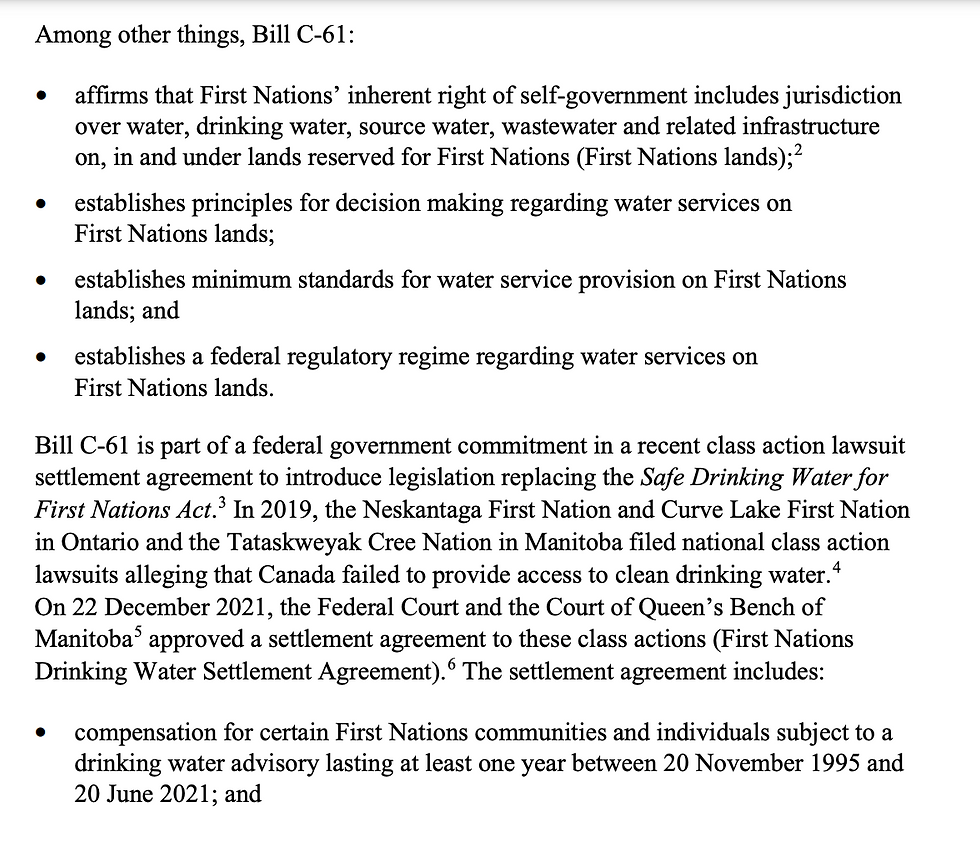Reasons for Hope: Successful Water Efforts by First Nations
- IWP-PAE Team/Équipe

- Dec 11, 2024
- 2 min read
Updated: Feb 19, 2025
Atlantic First Nations Water Authority
The Atlantic First Nations Water Authority (AFNWA), founded in early 2022, is responsible for the operation, maintenance, and capital upgrades of all water and wastewater assets in participating First Nations. 19 First Nations communities have participated in asset management plans so far, of a total of 34 in the Atlantic provinces, and as of April 1, 2023, AFNWA had assumed full operations of the water and wastewater systems in 8 communities.
The utility is led by a Board of Directors of up to 15 members, including 12 from First Nations leadership and three technical experts. The AFNWA Board is supported by an active Elders Advisory Lodge to ensure traditional values and culture are incorporated in daily operations.
The AFNWA website provides full transparency: “you can access Board of Director meeting agendas and minutes, our Business Case, Governance Manual, and other important documents that shaped the creation of our utility.”
The AFNWN is a beacon of hope and good governance that is surely already inspiring discussions for application elsewhere in Canada.
BC First Nations Health Authority
The First Nations Health Governance structure belongs to First Nations in BC. It consists of
i. political representation, leadership, and advocacy;
ii. health service delivery; and
iii. technical advice and capacity development on behalf of First Nations community Health Directors.
This third component is the mandate of the Health Authority, who ensure the provision of safe drinking water via the Drinking Water Safety Program – but does not fund nor manage construction of related infrastructure.
The Health Authority also manages Environmental Public Health Services, which provides advice to communities on drinking water safety, including recommendations on when a drinking water advisory is warranted.
It is the responsibility of Chief and Council to implement an advisory and take the necessary measures to rectify the problems which led to the advisory. Once remedial measures are completed, Environmental Public Health Services supports communities by verifying that the drinking water is once again safe and is protected from potential future problems.
Some problems can be fixed with routine maintenance procedures. Other issues, such as infrastructure improvements, can require initiating an infrastructure investment project to Indigenous Services Canada (ISC).
Environmental Health Officers interpret both drinking water and wastewater quality results, review design, and provide consultation on new or upgraded infrastructure from a public health perspective. This includes both water and wastewater infrastructure.



